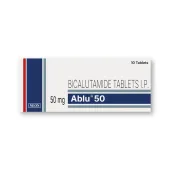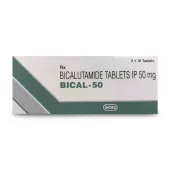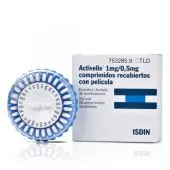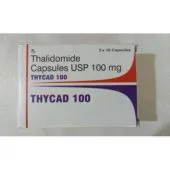Anti Cancer

Cancer refers to group of diseases caused by the development of abnormal cells that divide uncontrollably and have the ability to infiltrate and destroy normal body tissue. This disease takes it actual form when the abnormal cells start travelling to the entire body.
Cancer is the second-leading cause of death in the United States. However, thesurvival rate has improved significantly due to the improvement in cancer screening and treatment technologies.
Causes Of Cancer
Cancer can take decades to develop. That's why most people diagnosed with cancer are 65 or older. While it's more common in older adults, cancer isn't exclusively an adult disease — cancer can be diagnosed at any age.
Your habits
Certain lifestyle choices are known to increase your risk of cancer. Smoking, drinking more than one alcoholic drink a day (for women of all ages and men older than age 65) or two drinks a day (for men age 65 and younger), excessive exposure to the sun or frequent blistering sunburns, being obese, and having unsafe sex can contribute to cancer.
You can change these habits to lower your risk of cancer — though some habits are easier to change than others.
Your family history
Genetic Desposition of cancer is a rare condition however, it is possible. If cancer is common in your family, it's possible that mutations might be passed from one generation to the next. You might be a candidate for genetic testing to see whether you have inherited mutations that might increase your risk of certain cancers.
Your health conditions
Some chronic health conditions, such as ulcerative colitis, can markedly increase your risk of developing certain cancers. Talk to your doctor about your risk.
Your environment
The environment around you may contain harmful chemicals that can increase your risk of cancer. Even if you don't smoke, prolonged passive smoking can still contribute to the develpoment of the disease. Chemicals in your home or workplace, such as asbestos and benzene, also are associated with an increased risk of cancer.
Symptoms Of Cancer
Signs and symptoms caused by cancer will vary depending on what part of the body is affected.
Some general signs and symptoms associated with, but not specific to, cancer, include:
- Fatigue
- Lump or area of thickening that can be felt under the skin
- Weight changes, including unintended loss or gain
- Skin changes, such as yellowing, darkening or redness of the skin, sores that won't heal, or changes to existing moles
- Changes in bowel or bladder habits
- Persistent cough or trouble breathing
- Difficulty swallowing
- Hoarseness
- Persistent indigestion or discomfort after eating
- Persistent, unexplained muscle or joint pain
- Persistent, unexplained fevers or night sweats
- Unexplained bleeding or bruising
Adverse Effects On Body
- Fatigue
- Pain
- Changes in appetite
- Changing body image
- Loss of interest in sex
- Fertility
- Sleeping problems
Diagnosis
The following are some common and basic diagnostic tests:
- A review of health history
- Physical examination
- Laboratory tests (blood, urine, etc.)
- Biopsy
- Imaging tests (X-ray, PET/CT, MRI, ultrasound, etc.)
- Nuclear medicine scans (bone scans, etc.)
- Endoscopy
- Genetic tests
Prevention
There's no certain way to prevent cancer. But doctors have identified several ways of reducing your cancer risk, such as:
- Stop smoking: If you smoke, quit. If you don't smoke, don't start. Smoking is linked to several types of cancer — not just lung cancer. Stopping now will reduce your risk of cancer in the future.
- Avoid excessive sun exposure: Harmful ultraviolet (UV) rays from the sun can increase your risk of skin cancer. Limit your sun exposure by staying in the shade, wearing protective clothing or applying sunscreen.
- Eat a healthy diet: Choose a diet rich in fruits and vegetables. Select whole grains and lean proteins.
- Exercise most days of the week: Regular exercise is linked to a lower risk of cancer. Aim for at least 30 minutes of exercise most days of the week. If you haven't been exercising regularly, start out slowly and work your way up to 30 minutes or longer.
- Maintain a healthy weight: Being overweight or obese may increase your risk of cancer. Work to achieve and maintain a healthy weight through a combination of a healthy diet and regular exercise.
- Drink alcohol in moderation: If you choose to drink alcohol, limit yourself to one drink a day if you're a woman of any age or a man older than age 65, or two drinks a day if you're a man 65 years old or younger.
- Schedule cancer screening exams: Talk to your doctor about what types of cancer screening exams are best for you based on your risk factors.
- Ask your doctor about immunizations: Certain viruses increase your risk of cancer. Immunizations may help prevent those viruses, including hepatitis B, which increases the risk of liver cancer, and human papillomavirus (HPV), which increases the risk of cervical cancer and other cancers. Ask your doctor whether immunization against these viruses is appropriate for you.
Common Questions Related To Cancer
Can cancer surgery or a tumor biopsy cause cancer to spread in the body?
The chance that surgery will cause cancer to spread to other parts of the body is extremely low. Following standard procedures, surgeons use special methods and take many steps to prevent cancer cells from spreading during biopsies or surgery to remove tumors. For example, if they must remove tissue from more than one area of the body, they use different surgical tools for each area.
Will cancer get worse if exposed to air?
No. Exposure to air will not make tumors grow faster or cause cancer to spread to other parts of the body.
Do cell phones cause cancer?
No, not according to the best studies completed so far. Cancer is caused by genetic mutations, and cell phones emit a type of low-frequency energy that does not damage genes.



















